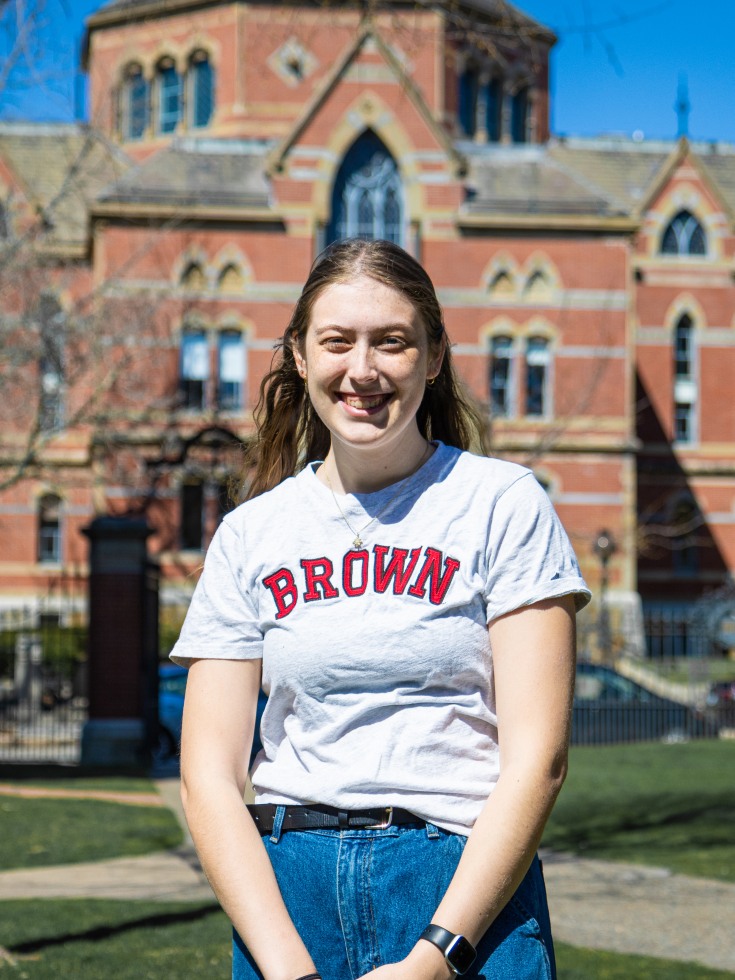PROVIDENCE, R.I. [Brown University] — In 2019, Brown University piloted a novel, no-cost summer program that flew a small group of rising high school seniors from rural and small-town communities to Brown’s campus in Providence for a unique opportunity to explore college pathways.
Cameron Goodreau, now a junior at Brown, was among the 19 students in the inaugural fly-in cohort, traveling to Brown from her village of 2,000 people in the Upper Peninsula of Michigan. Goodreau attended high school with just 20 students in her class, the nearest mall was a four-hour drive, and she’d never used a crosswalk. Her experience at Brown that summer transformed her understanding of what was possible after high school.
“Ivy Leagues and other top universities seemed so far out of reach for someone from a rural area that I never even considered them,” Goodreau said. “I had no idea what schools I could realistically attend, or where I wanted to attend. The fly-in program put into perspective that I had the skills and capabilities to attend schools like Brown.”
After pausing the fly-in program given COVID-19 limitations, Brown has now relaunched and broadened the initiative, backed by its membership in a new nationwide consortium of colleges and universities called the Small Town and Rural Students College Network. In Fall 2022, the STARS College Network enabled Brown to fly in 28 high school sophomores and juniors to College Hill. The program provided earlier and more comprehensive exposure to college opportunities for rural students who might not otherwise have been able to fully assess the wide range of educational opportunities available to them.
